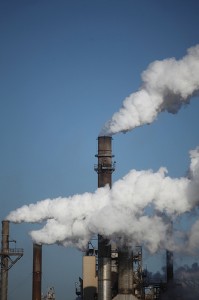 Nobody loves a good hot sauce like St. Louis locals do. But even the most avid of fans might get sick (literally) of living with the burning odor of chili peppers.
Nobody loves a good hot sauce like St. Louis locals do. But even the most avid of fans might get sick (literally) of living with the burning odor of chili peppers.
Residents of the Los Angeles suburb where Sriracha hot sauce is manufactured recently sued the company in Los Angeles Superior Court. The plaintiffs asked the judge to rule in their favor for a preliminary injunction, halting production of the popular condiment. The plaintiffs originally demanded the judge shut down the factory permanently, but modified their request for a temporary closure due to constant “headaches and irritation to their eyes and throats” caused by the chili sauce.
The judge disagreed, denying the injunction and offering barbed remarks to the plaintiffs, calling their demands for a shutdown “rather edgy.”
A public nuisance or toxic tort claim such as the one filed against the makers of Sriracha has a high threshold of proof. As the article points out, it can be difficult to prove even with good evidence.
The elements of a claim in Missouri are similar to those elsewhere, as the law is rooted in Restatement (Second) of Torts, beginning with Section 821B:
- The nuisance presents an unreasonable interference with a right common to the general public.
- Unreasonableness is measured by
- whether the conduct involves a significant interference with the public health, the public safety, the public peace, the public comfort or the public convenience, or
- whether the conduct is proscribed by a statute, ordinance or administrative regulation, or
- whether the conduct is of a continuing nature or has produced a permanent or long lasting effect, and, as the actor knows or has reason to know, has a significant effect upon the public right.
Proving that the general public (not just an individual) has suffered an unreasonable interference was what ultimately ended the California claim.
If you believe that you face a similar situation where your quality of life has been unreasonably interfered with due to the water, air, or soil pollution caused by factory production, contact a personal injury attorney experienced in handling toxic tort cases such as these.

